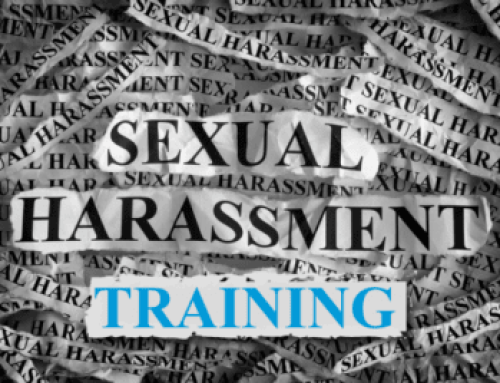Overview:
Commercial tenants in Los Angeles County recently received yet another reprieve from local officials. On September 28, 2021, the LA County Board of Supervisors enacted “The County of Los Angeles COVID-19 Tenant Protections Resolution” (the “Resolution”), which further protects commercial tenants through January 31, 2022. The Resolution makes it clear that the County’s eviction protections are the baseline for all incorporated cities within LA County, including cities that have their own local eviction moratoria. Commercial tenants with 9 or fewer employees will have 12 months to repay back rent (starting February 1, 2022, unless further extended), while tenants with 10 or more employees will have 6 months to repay back rent (to be paid in equal installments, unless tenant and landlord agree to an alternate payment arrangement).
Resolution Applies to Cities; Uniform Baseline Protections:
Effective September 1, 2020, the County’s eviction moratorium applies to incorporated cities within the County of LA. The Resolution is intended to provide uniform, minimum, baseline standards to protect commercial (and residential) tenants during the period of the local emergency. According to the Resolution, “[n]othing in this Moratorium shall be construed to preclude any incorporated city within the County from imposing, or continuing to impose, greater local protections than are imposed by this Moratorium if the protections are not inconsistent with this Moratorium and are not preempted by State or federal regulations.” The Resolution goes on to provide that “[e]xamples of greater local protections include, but are not limited to, granting additional time for commercial Tenants to notify a Landlord of an inability to pay rent, removing a requirement that a commercial Tenant notify a Landlord of an inability to pay, removing a requirement for a commercial Tenant to provide a certification or evidence of an inability to pay rent, and expanding the prohibition on evictions of Tenants to include additional prohibited grounds for eviction.”
Note that the LA City ordinance calls for a 3-month repayment period after the COVID-19 emergency is declared over, which provides less tenant protection and assistance. As such, the County’s 12-month repayment period (or 6-month, if the business has more than 9 employees) should control the analysis, but expect landlords to argue that the repayment timeframe is not part of the baseline “eviction protections” contemplated by the Resolution (and, indeed, is not listed as one of the potential “greater local protections”). There will likely be litigation in this regard down the road.
Resolution Confirms Protections Granted Earlier:
The Resolution confirms that, effective June 22, 2021, the following additional protections for commercial tenants were enacted (and continue to apply): (1) require landlords to give commercial tenants with 9 or fewer employees notice of their rights under the moratorium; (2) expand affirmative defenses to include protection from enforcement of personal guarantees against any natural person for commercial rental debt accrued during the moratorium period for commercial tenants with 9 or fewer employees; and (3) specify that holdover and month-to-month commercial tenants are protected by the moratorium. There are likely many landlords that have failed to expressly provide their commercial tenants with “notice of their rights under the moratorium.” The penalty for such failure is unclear at this time.
Providing Landlord with Notice of Inability to Pay Rent:
A commercial tenant cannot be evicted for nonpayment of rent, late charges, interest, or any other fees accrued if they demonstrate an inability to pay rent and/or such related charges due to financial impacts related to COVID-19, the state of emergency regarding COVID-19, or their following of government-recommended COVID-19 precautions. To demonstrate such inability to pay, commercial tenants with 9 or fewer employees may provide, and landlords must accept, a self-certification of inability to pay rent, and they are required to provide the landlord with such notice within 7 days after the date that rent was due, unless extenuating circumstances exist. Commercial tenants with ten 10 or more employees (but fewer than 100) must provide the landlord written documentation demonstrating financial hardship, along with a notice of inability to pay rent, within such 7-day period.
Rent Repayment Timeframe:
Commercial tenants with 9 or fewer employees will have 12 months from the expiration of the moratorium period to repay unpaid rent. Commercial tenants with 10 or more employees will have 6 months to repay back rent, which must be paid in equal installments unless the tenant and landlord agree to a different payment schedule. The moratorium period is set to expire on January 31, 2022, but the LA County Board of Supervisors will be continually evaluating the pandemic to determine whether to extend (or even shorten) such time period. Also, when rent payments resume, landlords are prohibited from applying any rental payments to any rental debt other than to the prospective month’s rent, or such other month or rental debt that the tenant specifies, unless the tenant has agreed in writing to allow the payment to be otherwise applied.
Failure to Pay Back Rent Not Grounds for Eviction:
A commercial tenant’s failure to pay back unpaid rent under the terms of a payment plan, or at the end of the repayment period, cannot be used by the landlord as “cause” to evict the tenant. And any term in a repayment plan that allows eviction due to the tenant’s failure to comply with the terms of such repayment plan is void as contrary to public policy. This is a very interesting and major concept expressed in the Resolution. The question becomes: What is the tenant’s motivation to repay back rent? Perhaps the threat (or eventuality) of civil lawsuits for breach of contract will carry the day for landlords and ensure commercial tenants continue making their current and back-rent payments.
Prohibition of Interest, Penalties, and Late Fees:
Pursuant to the Resolution, landlords cannot impose or otherwise charge interest, late fees, or penalties on unpaid rent or other amounts otherwise owed during the moratorium period, and they are prohibited from retroactively imposing or collecting any such amounts following the termination or expiration of the moratorium.
Prohibition of Harassment and Retaliation:
Landlords, and those acting on their behalf or direction, are prohibited from harassing, intimidating, or retaliating against commercial tenants for acts or omissions by such tenants permitted under the Resolution. Any such wrongful acts will be deemed to be violations of the Retaliatory Eviction and Harassment provisions as set forth in LA County Code Sections 8.52.130 and 8.57.100. Such wrongful acts include, but are not limited to, the following:
- Interrupting, terminating, or failing to provide all services required to be provided by the landlord related to the use or occupancy of a rental unit under the terms of a lease agreement or under federal, State, County, or local housing, health, or safety laws unless such services are closed due to Health Officer Orders;
- Failing to perform repairs and maintenance required by a rental agreement or by federal, State or local housing, health, or safety laws;
- Failing to exercise due diligence in completing repairs and maintenance once undertaken or failing to follow appropriate industry repair, containment, or remediation protocols designed to minimize exposure to noise, dust, lead, paint, mold, asbestos, or other building materials with potentially harmful health impacts;
- Abusing the landlord’s right of access into a rental unit. This includes entries, and attempted entries, for inspections that are not related to necessary repairs or services; that are excessive in number; that improperly target certain tenants; that are used to collect evidence against the occupant; or that are otherwise beyond the scope of a lawful entry;
- Abusing a tenant with words that are offensive and inherently likely to provoke an immediate violent reaction. This includes words used during in-person conversations, through social media postings or messages, or other communications;
- Influencing or attempting to influence a tenant to vacate a rental unit through fraud, intimidation, or coercion, which includes threatening to report a tenant to the United States Department of Homeland Security or any other governmental or law enforcement agency;
- Threatening a tenant, by word, gesture, or with physical harm;
- Violating any law which prohibits discrimination based on race, gender, sexual preference, sexual orientation, ethnic background, nationality, religion, age, parenthood, marriage, pregnancy, disability, human immunodeficiency virus (HIV)/acquired immune deficiency syndrome (AIDS), occupancy by a minor child, or source of income;
- Taking action to terminate any tenancy including service of any notice to quit or notice to bring any action to recover possession of a rental unit based upon facts which the landlord has no reasonable cause to believe to be true or upon a legal theory which is untenable under the facts known to the landlord;
- Removing from the rental unit personal property, furnishings, or any other items without the prior written consent of a tenant, except when done pursuant to enforcement of a legal termination of tenancy or as otherwise authorized by law;
- Offering payments to a tenant to vacate more than once in 6 months, after the tenant has notified the landlord in writing that the tenant does not desire to receive further offers of payments to vacate;
- Attempting to coerce a tenant to vacate with offers of payment to vacate which are accompanied with threats or intimidation. This does not include settlement offers made in good faith and not accompanied by threats or intimidation in pending eviction actions;
- Refusing to acknowledge receipt of a tenant’s lawful rent payment;
- Refusing to cash a rent check for over 30 days;
- Requesting information that violates a tenant’s right to privacy including, but not limited to, residence or citizenship status, protected class status, or social security number, except as required by law or in the case of a social security number, for the purpose of obtaining information to determine qualification for tenancy, or releasing such information except as required or authorized by law; and
- Other repeated acts or omissions of such significance as to substantially interfere with or disturb the comfort, repose, peace, or quiet of any person lawfully entitled to occupancy of such rental unit and that cause, are likely to cause, or are intended to cause any person lawfully entitled to occupancy of a rental unit to vacate such rental unit or to surrender or waive any rights in relation to such occupancy.
Administrative Fines Against Landlords:
Any landlord that violates certain provisions of the Resolution (including those related to anti-harassment) will be subject to administrative fines pursuant to Sections 8.52.160 and 8.57.130 of the LA County Code, up to $5,000 per violation for each day the violation continues. If the aggrieved tenant is disabled or at least 65 years old, an additional fine of up to $5,000 per violation per day may be assessed. Commercial landlords in LA County must tread carefully when dealing with their tenants, and they should engage competent legal counsel to assist them.






